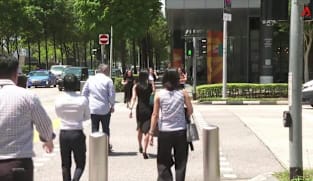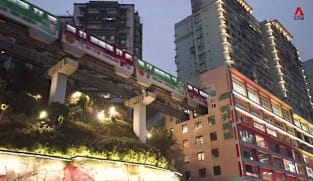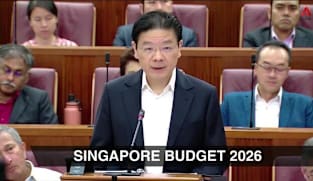Adjournment motion on building a heat-resilient Singapore
Singapore must work to mitigate rising temperatures because their impact brings substantial social and economic costs, there are proven ways of doing so and the can should not be kicked down the road, said MP He Ting Ru in Parliament on Wednesday (Feb 7). She said Singapore’s strategies to adapt to urban heat have to better take into account socioeconomic issues, be accelerated and given regulatory teeth. For example, more focus should be given to those who are less well-off, such as by prioritising efforts to ensure thermal comfort and wind flow for rental flats and smaller flats, subsidising fans or blackout curtains, and expanding the Climate-Friendly Households voucher scheme to support vulnerable residents living in larger flats. The Government should also speed up plans to retrofit all public sector buildings in line with super-low energy certification, especially near residential areas to reduce heat emissions. Regulation also plays an important role, said Ms He. She made several suggestions, such as developing legislation that makes it easier for condominiums to install solar panels, exploring the need for climate change impact assessments for new infrastructure and requiring F&B establishments to serve tap water for free. In response, Senior Minister of State for Sustainability and the Environment Amy Khor said the Government adopts a science-based and proactive heat resilience strategy with three prongs. First - implementing national-level cooling strategies to benefit all segments of society, including the vulnerable. She gave the example of HDB removing some units in older rental blocks to create more openings along corridors to enhance airflow. Second - empowering the public to cope with a warming world. For instance, launching a Heat Stress Advisory and making heat stress levels available on the myENV app. Third - deepening scientific understanding of the impact of rising temperatures to inform heat resilience strategies.
Singapore must work to mitigate rising temperatures because their impact brings substantial social and economic costs, there are proven ways of doing so and the can should not be kicked down the road, said MP He Ting Ru in Parliament on Wednesday (Feb 7). She said Singapore’s strategies to adapt to urban heat have to better take into account socioeconomic issues, be accelerated and given regulatory teeth. For example, more focus should be given to those who are less well-off, such as by prioritising efforts to ensure thermal comfort and wind flow for rental flats and smaller flats, subsidising fans or blackout curtains, and expanding the Climate-Friendly Households voucher scheme to support vulnerable residents living in larger flats. The Government should also speed up plans to retrofit all public sector buildings in line with super-low energy certification, especially near residential areas to reduce heat emissions. Regulation also plays an important role, said Ms He. She made several suggestions, such as developing legislation that makes it easier for condominiums to install solar panels, exploring the need for climate change impact assessments for new infrastructure and requiring F&B establishments to serve tap water for free. In response, Senior Minister of State for Sustainability and the Environment Amy Khor said the Government adopts a science-based and proactive heat resilience strategy with three prongs. First - implementing national-level cooling strategies to benefit all segments of society, including the vulnerable. She gave the example of HDB removing some units in older rental blocks to create more openings along corridors to enhance airflow. Second - empowering the public to cope with a warming world. For instance, launching a Heat Stress Advisory and making heat stress levels available on the myENV app. Third - deepening scientific understanding of the impact of rising temperatures to inform heat resilience strategies.



















